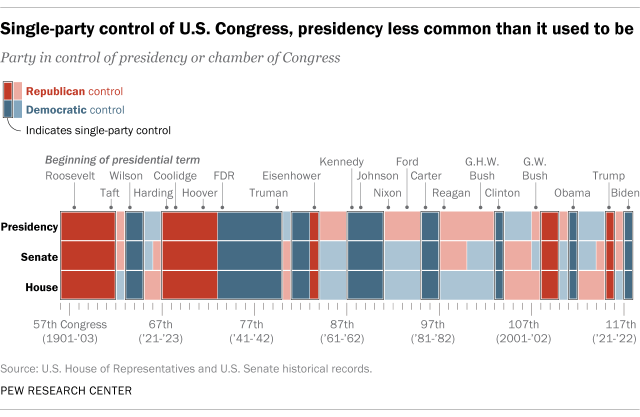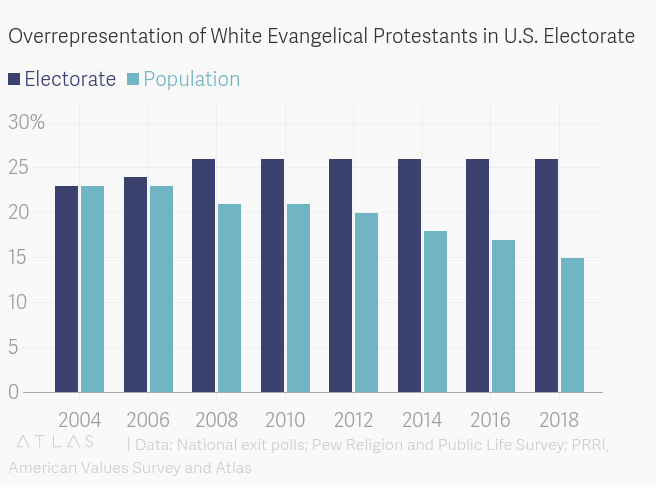Richard Hanania argues that DeSantis’ abortion ban hurts his prospects for a general election:
With Ron DeSantis about to sign a six-week abortion ban and sink his chances of winning a general election, it’s useful to think a bit about why this issue has been such a loser for Republicans.
The degree to which this is a strong issue for Democrats can be seen in what has happened in Michigan. The state voted for Trump in 2016, had a Republican governor until 2019, and a Republican legislature until last year’s midterms. Michigan now has Democratic women in the positions of governor, attorney general, secretary of state, and senate majority leader.
State/local elections are irrelevant as far as general elections are concerned. Issues which may poll well for one is of little predictive value for the other. It makes sense why it’s this way: different demographics, fewer candidates, higher turnout rates, different victory conditions, etc.
Again, look what happened in 1992 and 1996: big wins for Clinton yet the House flipped. Democrats held leads in the House in the 70s and 80s despite landslides for Nixon and Reagan:

Women tend to vote the same way as their husbands, particularly on the right.
Women who care strongly about preserving abortion rights are mostly clustered in states that already have solid blue leads–the same states Hillary won, yet she still lost the election.
Voters voting against their interests is common. It may not seem rational for women to vote in favor of restricting abortion rights, but this sort of thing happens all the time in elections. This is discussed in Thomas Frank’s influential 2004 book What’s the Matter Kansas.
The most important voters are the ‘pickup truck demographic’, composed of white, middle class or above, conservative-learning men, who have among the highest turnout rates and feel strongly about culture war issue, like abortion. These people are why Trump won despite losing the popular vote, and why the election was still close in 2020 (until the ‘surge’).
George W. Bush won in 2000 by running on a highly socially conservative platform and securing the evangelical vote. This is enough to offset the possible loss of undecided voters/moderates. The major difference now is that Biden is no Clinton, having a much lower approval rating (43% vs 55%) and a worse economy.
Media coverage has also become much more negative, even for the liberal media. In the late ’90s and early 2000s the dems could count on the NYTs and other media to talk-up the economy, but not so much anymore. From the NYTs, all negative (just a small sample):
Biden Sees Booming Economy, but Many Americans Don’t
President Biden’s Economy Is Failing the Big Mac Test
Most Democrats Don’t Want Biden in 2024, New Poll Shows
Democratic Report Explores Blue-Collar Struggles: ‘Our Brand Is Pretty Damaged’
And CNN:
Biden is close to the point of no return with Americans on the economy
CNN Poll: Most Americans have a dismal view of the US economy
This is a disastrous economic number for Joe Biden and Democrats
More bad news for Biden: More Americans are blaming him for the state of the economy
Biden looks powerless as crises crest around him
Biden’s stock market record so far is the second worst since Jimmy Carter
In regard to Ukraine, even the NYTs is starting to cast doubts, as the public loses interest and the war drags on with no victory on the horizon for either side: America Is In Over Its Head and Biden Challenged by Softening Public Support for Arming Ukraine.
This also agrees with what I wrote earlier about how the liberal media is not going to cover for Biden if/when things go downhill. For ratings and ad revenue, they will join the pile-on. It’s not so much that the NYTs and other media is always liberal, but such liberal bias reflects the zeitgeist. So as the public loses faith in Biden, so will the media. This is can explain why the liberal media so strongly supported the Iraq War in 2003-2004, because the war was also very popular with the general public, until around late 2004 when public opinion began to sour.
Overall, DeSantis fits the mold of being the perfect GOP frontrunner:
1. From a large state (similar to George W. Bush being from Texas and Reagan from California)
2. Willingness to fight/wage the culture wars head-on (like George W. Bush)
3. Good looking, full head of hair (similar to Reagan)
4. Lots of pre-election build-up/hype
5. Uncompromising, hard-liner demeanor (similar to Reagan in regard to communism, but fighting wokeness)
6. Should have no trouble getting the evangelical vote (similar to George W. Bush)
7. Stable family and personal life (similar to George W. Bush, and as opposed to Trump)
8. Appeal to the ‘NASCAR/truck demographic’ (similar to George W. Bush, and unlike Dole, Romney, and H. W. Bush).
What about the common argument about America becoming more secular or the decline of evangelicals? From the excellent article, white Christians punch away above their weight at the voting booth:

While white Christians composed only 43 percent of the population in 2016, they constituted an estimated 55 percent of voters. And although white evangelical Protestants composed only 17 percent of the public in 2016, they were 26 percent of voters. In other words, in the electorate, white Christians overall were 12 percentage points overrepresented, and white evangelical Protestants were nine percentage points overrepresented.
Turnout is key:
What fuels the Republicans’ political strength, in other words, is not current white Christian population levels, but the fact that white Christians historically turn out to vote at higher rates than nonwhite and non-Christian Americans. These higher turnout rates are driven by a number of factors. Voting is highly correlated with other forms of civic participation, such as church attendance. Voting is also highly correlated to education levels, and white Christians are more likely than nonwhite Christians to hold a four-year-college degree. Finally, voting is a habit that has been strongly emphasized in white Christian churches, especially among white evangelicals since the rise of the Christian right in the 1980s.
In summary, based on the above evidence, there is no reason to believe taking a hard line on abortion will hurt DeSantis in a general election.